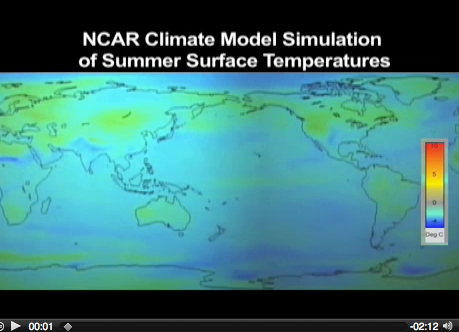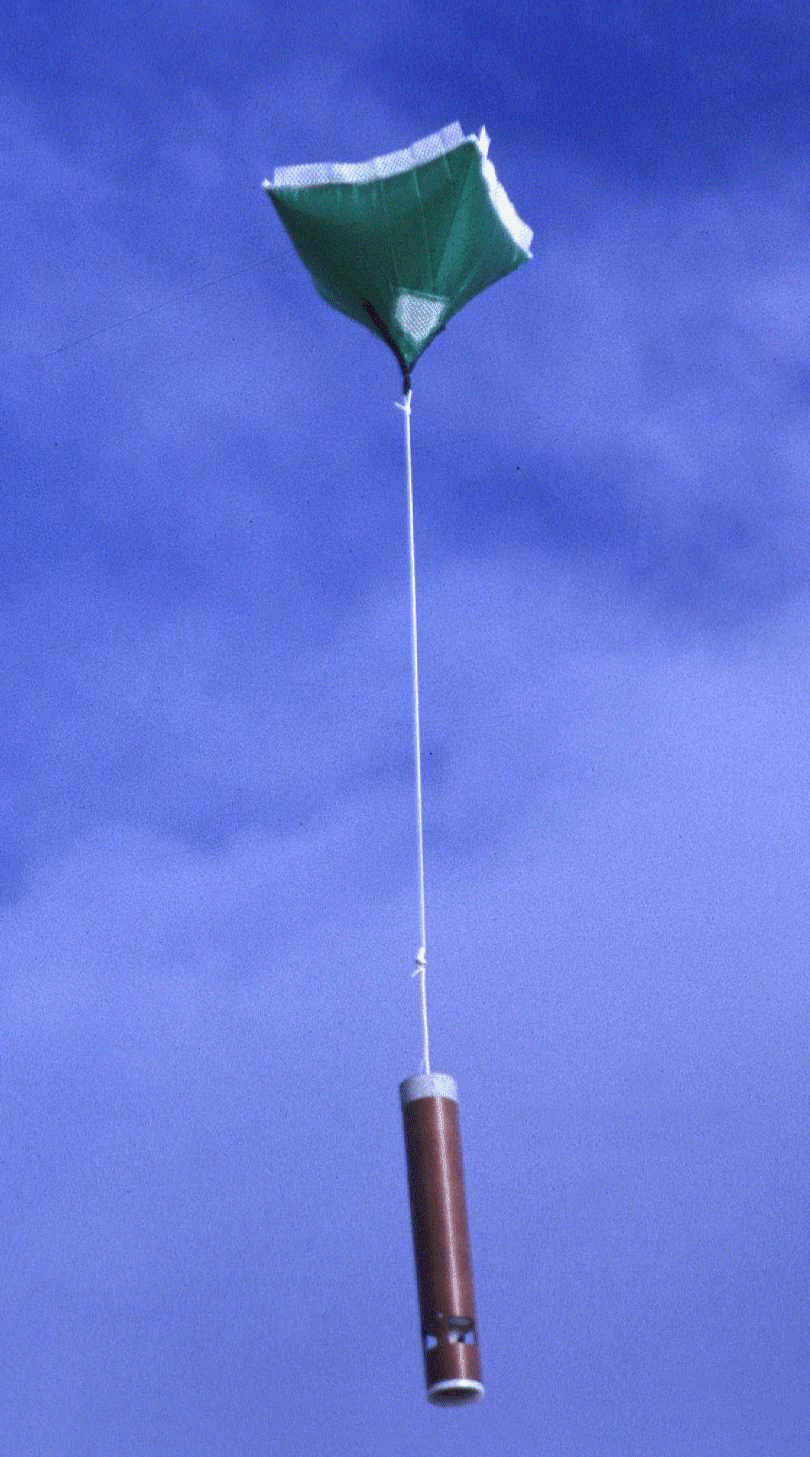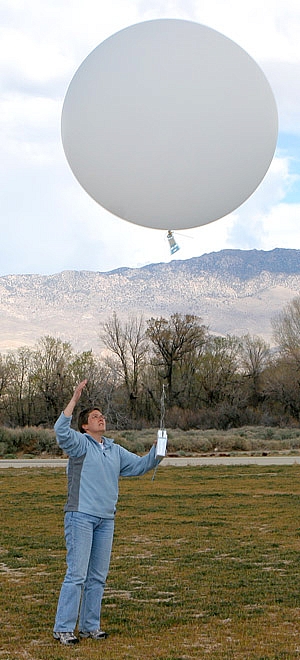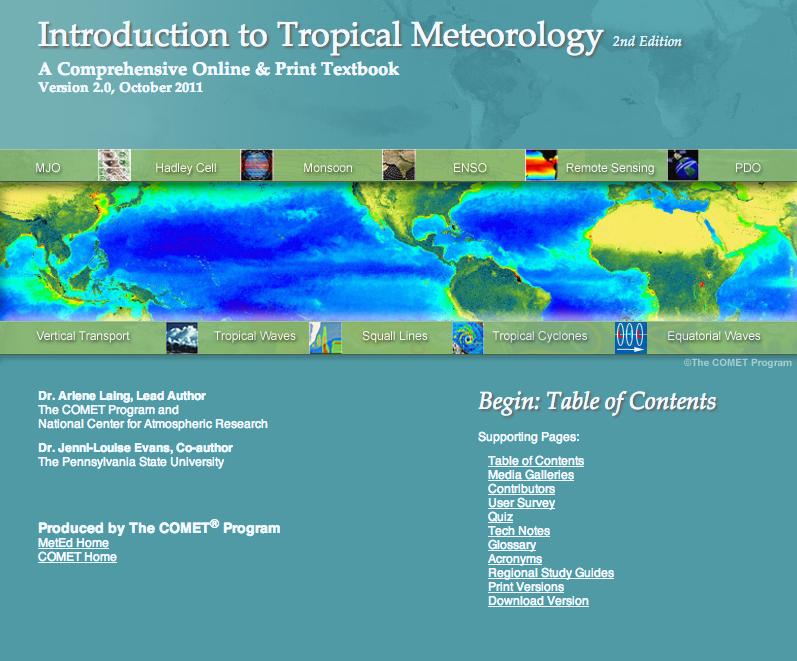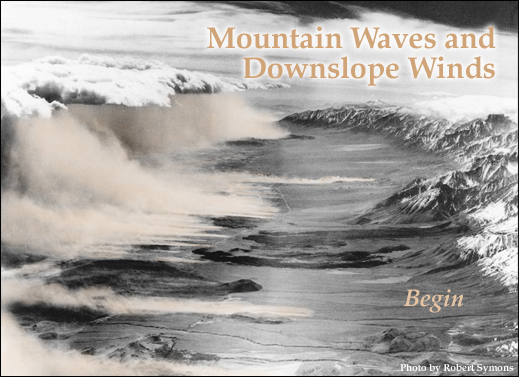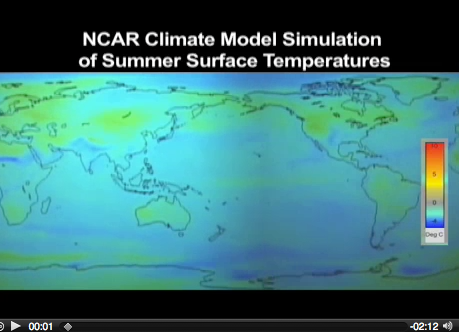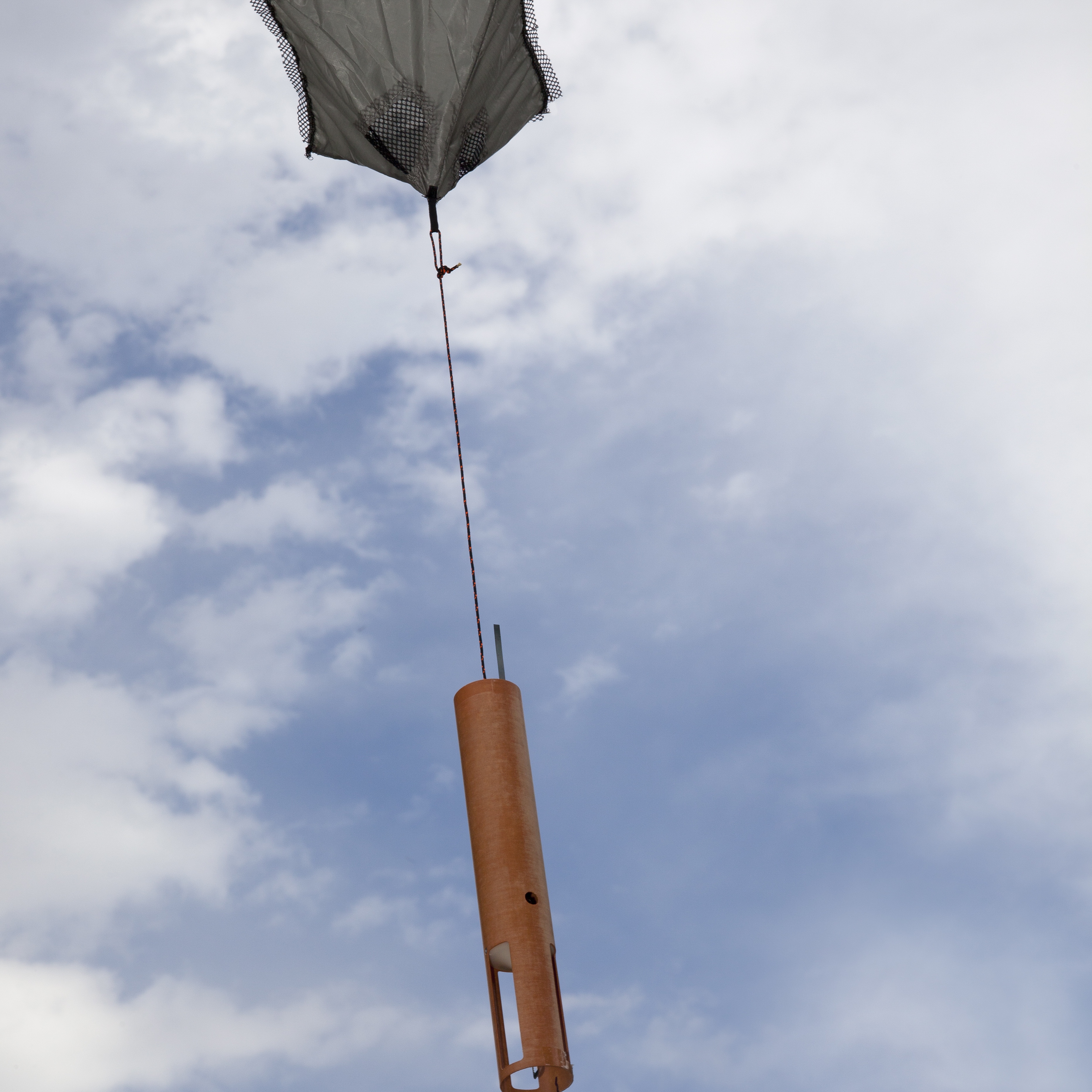| VIDEOS |
|
Air. Planet. People. |
NSF/NCAR HIAPER Research Aircraft
|
|
|
Gravity Wave :: Video by Daryl Herzmann.
|
Science Nation :: Dropsondes |
|
|
How to Build a Climate Model |
| K-12 SCIENCE EDUCATION MODULES |
 Earth's atmosphere is a mixture of gases that surrounds our home planet. Besides providing us with something to breathe, the atmosphere helps make life on Earth possible in several ways. It shields us from most of the harmful ultraviolet (UV) radiation coming from the Sun, warms the surface of our planet by about 33° C (59° F) via the greenhouse effect, and largely prevents extreme differences between daytime and nighttime temperatures.
Earth's atmosphere is a mixture of gases that surrounds our home planet. Besides providing us with something to breathe, the atmosphere helps make life on Earth possible in several ways. It shields us from most of the harmful ultraviolet (UV) radiation coming from the Sun, warms the surface of our planet by about 33° C (59° F) via the greenhouse effect, and largely prevents extreme differences between daytime and nighttime temperatures.
>> Learn more
Exploring the Atmosphere with Dropsondes
 Let’s say you would like to know how temperature, wind, air pressure and humidity vary throughout a hurricane. This information could help you know whether the hurricane is growing stronger and which direction it is heading. But hurricanes are dangerous storms. It's hard to get inside them. One way to get that information safely is to use dropsondes.
Let’s say you would like to know how temperature, wind, air pressure and humidity vary throughout a hurricane. This information could help you know whether the hurricane is growing stronger and which direction it is heading. But hurricanes are dangerous storms. It's hard to get inside them. One way to get that information safely is to use dropsondes.
>> Learn more
Exploring the Atmosphere with Weather Balloons
 Every 12 hours, hundreds of people in places around the world release huge, white balloons into the sky. The balloons float upward, each tethered to a box of instruments that collects data about the atmosphere.
Every 12 hours, hundreds of people in places around the world release huge, white balloons into the sky. The balloons float upward, each tethered to a box of instruments that collects data about the atmosphere.
>> Learn more
| ADVANCED SCIENCE EDUCATION MODULES |
Introduction to Tropical Meteorology (free login required)
 This online textbook is a comprehensive resource for Tropical Meteorology. It is intended for use by undergraduate and early graduate students in Tropical Meteorology courses, forecasters, and others interested in the impacts of tropical weather and climate.
This online textbook is a comprehensive resource for Tropical Meteorology. It is intended for use by undergraduate and early graduate students in Tropical Meteorology courses, forecasters, and others interested in the impacts of tropical weather and climate.
>> Learn more
Mountain Waves and Downslope Winds (free login required)
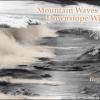 The goal of this training module is to help you increase your understanding of how and why mountain waves occur and how they contribute to thedevelopment of strong downslope winds. Such understanding, in turn, can help you more efficiently and accurately evaluate the synoptic and mesoscale conditions that might result in high winds and wind shear as well as severe to extreme turbulence.
The goal of this training module is to help you increase your understanding of how and why mountain waves occur and how they contribute to thedevelopment of strong downslope winds. Such understanding, in turn, can help you more efficiently and accurately evaluate the synoptic and mesoscale conditions that might result in high winds and wind shear as well as severe to extreme turbulence.
>> Learn more
Letter from the Project Manager
DEEPWAVE EOL Facilities
GATS Airborne Lidar
DLR Facilities
NIWA Facilities
NZ Met Service Facilities
Quick Questions for DEEPWAVE PIs
Relevant DEEPWAVE PI Publications
DEEPWAVE Facilities & Platforms
